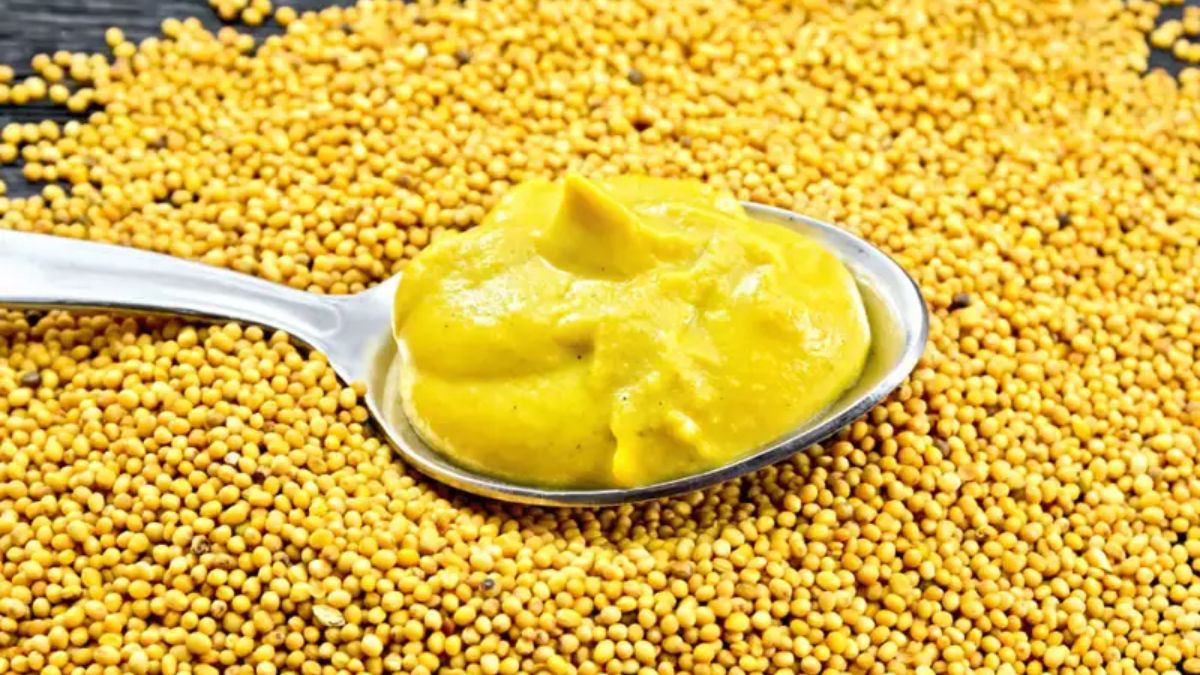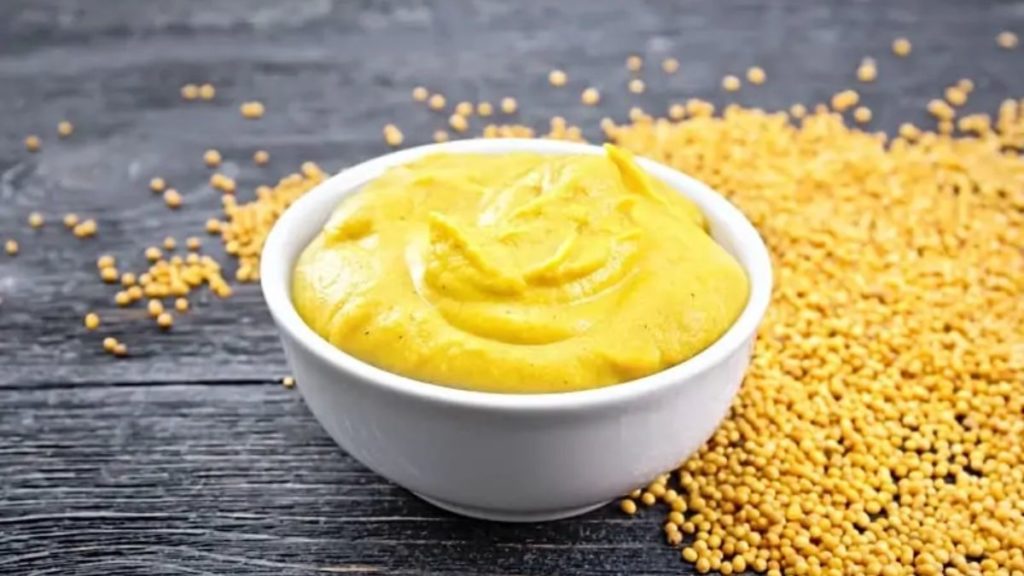How to tell if Mustard is bad? If you notice that the color of the Mustard has changed, it’s not edible. Usually, this happens due to bacteria growth. In addition, if the Mustard has a foul odor, it’s time to throw it out. The smell is easily recognizable, as Mustard has a very strong odor. Hopefully, these tips will help you identify the symptoms of bad Mustard.
Keeping your Mustard in a cool place is important. Mustard will keep longer in the refrigerator than at room temperature. However, it’s best to use it within a month. During this time, the Mustard’s pungent kick will lessen as it spends time in the air. Similarly, if you store ground mustard in the fridge, you should shake the bottle occasionally to stir it. This will help restore the condiment’s original state.
How to Tell if Mustard is Bad?
It is never a great idea to eat bad Mustard, and I will show you signs you can apply to check if your Mustard has turned old or not to avoid risking some health issues. Your senses are the greatest tools for that!
Signs that prove Mustard has gone bad are as below;
Smell: If Mustard is kept for a long time, especially after the “best by” date, it may lose its distinctive mustard smell. You can still eat Mustard that has lost some of its smell, but if it smells bad or sour, you should throw it away.
Texture: Mustard is made from a liquid with an acidic base and a mix of spices. It’s not a big deal if the liquid separates from the other ingredients but doesn’t smell funny or change color. If you give it a good stir, you’ll see that they start to balance out again. But if you smell something strange, you should immediately throw out the Mustard. The Mustard tastes acidic, bitter, or even spicy enough to make your tongue tingle, and it is unsafe to eat and should be thrown away.
Interesting Facts About Mustard:
In 1904, George T. French-made mustard less spicy than the kind used in Europe. He thought that Americans would like it better. Well, they did, and his Mustard is often called “American” or “ballpark” Mustard is creamy and yellow.
The bright yellow ones, like French’s, get their color from the Tumeric spice. Most of the time, all flavors have the same shelf life.
The Mustard that comes in a package doesn’t need to be kept in the fridge until it is opened.
Dijon-style was first made in the French city of Dijon. It can be made in many places, but the recipe still calls for wine.
How Long can Mustard Last?
Mustard can be kept for a long time, even after the “best by” date on the jar or squeeze bottle says it should be thrown out.
If the best-by date has passed, it doesn’t mean that the Mustard is unsafe to eat; instead, it means that the quality of the Mustard is getting worse faster than before the best-by date. From what I’ve said so far, you can see that the Mustard is getting worse.
The list below shows how long it should be safe to eat Mustard after the best-by date has passed, as long as it has been stored properly and there are no signs that it has gone bad. The shelf life depends on what kind of Mustard it is and whether or not it has been opened.
How to Store Mustard for a Longer Shelf Life?
Here, I will show you things you need to consider to keep your Mustard flavorful.
- To get the most out of the Mustard you bought, you should always eat it before the “best by” date. After that date, the flavor will start to change slowly.
- Ensure your spoons are clean before taking a spoonful of Mustard to avoid getting it on other foods.
- It’s not nePuttingtard in the fridge, but it’s is an unnecessary good idea if you want it to last longer. Ensure the insured is always in the fridge and the texture doesn’t change. If the temperature does change, Mustard won’t last as long.
- To store homemade Mustard, put it in a container that won’t let air in and put it in the fridge. Depending on what’s in it, a homemade Mustard thamustarde fridge can last anywhere from a week to a year.
Is Mustard Good for you?
The seeds of the mustard plant are used to make Mustard, which is a popular condiment. This plant comes from the Mediterranean region and is related to broccoli, cabbage, and Brussels sprouts, which are healthy vegetables. Its seeds and leaves are edible and can be used in many different ways. Mustard has been used as a remedy in traditional medicine since ancient Greeks and Romans, and maybe for a good reason. Modern science is starting toshowingrd has health benefits like lowering blood sugar and making you less likely to get sick.
Mustard is a Source of Nutrients.
There are many different kinds of mustard plants, and all of them are very healthy. Their leaves have a lot of calcium, copper, and vitamins C, A, and K. Their seeds have a lot of fiber, selenium, magnesium, and manganese. Mustard leaves are a great addition to salads, soups, and stews because they can be eaten raw or cooked. They can be cooked the same way as spinach, but their taste is sharper and more like radish.
Mustard seeds can be steeped in warm milk, mixed into salad dressings, ground and sprinkled on warm foods, or soaked and used to make a mustard paste. Mustard paste might be the most common way that people eat Mustard. This low-calorie condiment is an easy way to add iron, calcium, selenium, and phosphorus to your meals.
Source of Beneficial Antioxidants
Antioxidants and other good plant compounds found in Mustard are thought to help protect your body from damage and disease. It has a lot of glucosinolates, compounds with sulfur found in all cruciferous vegetables like broccoli, cabbage, Brussels sprouts, and Mustard. When you chew or cut the leaves or seeds of a plant, you release glucosinolates, which are thought to boost your body’s antioxidant defenses and protect you from disease. The seeds and leaves of Mustard are especially high in:
Isothiocyanates. This chemical comes from glucosinolates, which may help stop cancer cells from growing or spreading.
Sinigrin. This compound, which comes from glucosinolates and gives Mustard its strong flavor, is thought to have anti-inflammatory, antibacterial, antifungal, anticancer, and wound-healing properties.
Carotenoids, isorhamnetin, and kaempferol are also large amounts in Mustard. Researchers have found that flavonoid antioxidants protect against type 2 diabetes, heart disease, and maybe even some types of cancer.
It May Offer Protection Against Certain Diseases.
Since ancient times, the mustard plant has been used to treat various illnesses. Recently, scientific evidence has come out to back up some of the claimed benefits of Mustard.
It may protect against certain types of cancer. Research with test tubes and animals shows that the glucosinolates in Mustard may kill cancer cells or stop them from spreading. But more research on people is needed.
May lower blood sugar levels. One small human study suggests that people with type 2 diabetes may lower their blood sugar levels more effectively by taking blood-sugar-lowering medicine and mustard green tea.
May protect against psoriasis. Studies on animals show that eating a lot of mustard seeds may help reduce inflammation and speed up the healing of lesions caused by psoriasis.
May reduce symptoms of contact dermatitis. Animal studies suggest that mustard seeds may help people with contact dermatitis, a condition in which the skin gets an itchy rash after coming into contact with an allergen, heal faster and feel better.
May offer protection against infections. Because they have antioxidants, mustard seeds may protect against bacteria and fungi, such as E. coli, B. subtilis, and S. aureus. But some studies say there is no protection.
Even though these benefits look good, there are still not many studies to back them up. Most have also been done with mustard extracts in cells or animals. So, it’s unclear whether eating mustard seeds, mustard leaves, or mustard paste would have the same effects. Before we can come to strong conclusions, we need to do more research.
Safety and Possible Side Effects
Most people can eat mustard seeds, leaves, or paste without getting sick, especially when they eat the amounts common in a normal diet. But if you eat a lot of it, as you would find in mustard extracts, you might get stomach pain, diarrhea, and inflammation in your gut. There is also a report of a woman who got contact dermatitis after putting a Chinese medicine patch with mustard seeds on her skin.
Lastly, mustard seeds and leaves that haven’t been cooked have a lot of goitrogens. These chemicals can stop your thyroid, the gland that controls your metabolism, from working as it should. People with healthy thyroids are not likely to have a problem. But people with thyroid problems may want to soak, boil, or cook mustard seeds and leaves before eating them or limit how much they eat.
Conclusion
Keeping Mustard in the refrigerator between uses is another good idea. Just like mayo, you’ll want to store it in a dark, cool place where it won’t get too warm. It would help if you also used an air-tight container to store the jar, preventing bacteria from growing in the jar and spoiling the condiment. This tip will help you to ensure that your mMustardstays fresh and odor-free.
Most people eat Mustard as a condiment, but you can also eat mustard seeds and leaves to get some of the plant’s possible health benefits. These range from lowering blood sugar and reducing inflammation to making people less likely to get sick. There’s even a chance that the chemicals in Mustard could help protect against some kinds of cancer.
Even though these possible benefits sound good, remember that many of them are based on small studies mostly done on animals and used extracts instead of mustard seeds, leaves, or paste. Still, if you like Mustard, there’s not much reason not to eat it daily.


